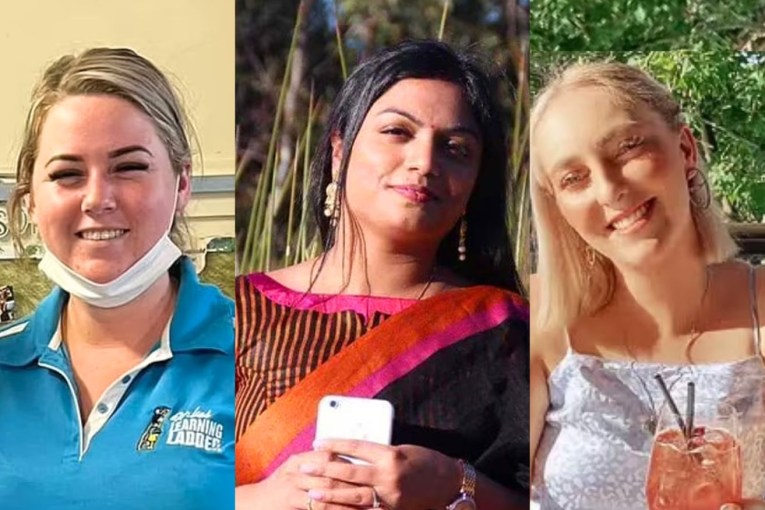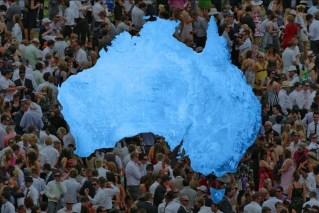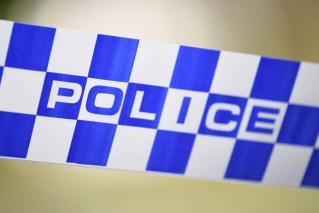Access to coronavirus vaccines could prove a major diplomatic bargaining chip in the post-COVID world, as nations jockey for places in the queue and Australia promises supplies to our Pacific neighbours.
But we’re not the only ones offering to help out Pacific nations.
With massive amounts of money, technological prowess and deal-making needed to secure the first batches of the most anticipated product in recent history, some countries will inevitably be left waiting.
In announcing the federal government’s signing of a letter of intent to take supplies of the Oxford University vaccine if it’s proven safe and effective, Prime Minister Scott Morrison said Australia “remains committed to ensuring early access to the vaccine for countries in our Pacific family, as well as regional partners in Southeast Asia.”
Mr Morrison said he had spoken to leaders of Papua New Guinea, Fiji and Indonesia about aid through development assistance agreements.
“In the Pacific that’s expected,” he said. But it has also become part of a growing trend of “vaccine diplomacy”.

The government signed a letter of intent with manufacturer AstraZeneca. Photo: AAP
Vaccine diplomacy
The concept of ‘vaccine diplomacy’ emerged recently as an unprecedented global effort mounts to develop COVID treatments.
PM Morrison has repeatedly said world leaders would look “dimly” on any country that kept a vaccine to itself, telling the Aspen Security Forum that would be “unimaginable.”
But international relations experts say a country being able to grant access to a vaccine could be the ultimate geopolitical bargaining chip – especially in the context of Australia’s standing in the Pacific being challenged by rising Chinese influence.
“There will be intense vaccine diplomacy and it is in Australia’s national interest to supply vaccines free to our neighbours in South East Asia and the Pacific,” Marc Purcell, CEO of the Australian Council for International Development, told The New Daily.

PNG Prime Minister Peter O’Neill with China’s Premier Li Keqiang in Beijing in 2019. Photo: Getty
“Not only is it the right thing to do, but assisting our neighbours with a vaccine is the way to build regional relationships and become a partner-of-choice.”
“If we don’t, others will.”
Purcell did not expressly mention China, but the country’s recent interest in the region has not gone unnoticed.
The Wall Street Journal reported on Tuesday that Beijing officials offered priority access to a Chinese vaccine to neighbours Indonesia and the Philippines, as well as Brazil, Pakistan and Russia.
Closer to Australia’s patch, a vast showering of cash from China has built infrastructure projects in Fiji, PNG, Samoa and Vanuatu.
Eyebrows were raised this week after footage emerged of the Chinese ambassador to Kiribati being welcomed to the country with a traditional ceremony where he walked across the backs of people laying on the ground.
Striking picture from Kiribati showing new Chinese Ambassador Tang Songgen welcomed off a plane.
Children lying face down on the ground & ambassador is walking across them. Kiribati national anthem is "Teirake Kaini Kiribati" – “Stand up, Kiribati” pic.twitter.com/IyvAwG9Fg7— Michael Field (@MichaelFieldNZ) August 16, 2020
The federal government – and Mr Morrison specifically – has intensified a focus on Pacific relations in recent years, with a policy termed a ‘Pacific Step-Up’ and many visits to island neighbours like PNG, Fiji and Tuvalu.
Professor Jane Golley, director of the Australian Centre on China in the World at the Australian National University, said Australia’s promise to supply vaccines in the Pacific could serve several purposes.
“If we accept there is a geopolitical or geoeconomic rivalry in the Pacific between China and Australia, it makes sense for Australia to think about ways it can most effectively compete,” she told The New Daily.
“Sharing vaccines is a fantastic example of a strategy that makes really good sense, rather than competing on infrastructure, where we’re far less likely to outdo China.”
Professor Golley said sharing vaccines is “a wonderful idea” while adding that it was important to note which countries were included.
“If we’re only sharing with allies, or only in countries where we perceive ourselves to have influence or want to grow influence, that becomes more than benevolent. It becomes strategic or economic,” she said.
“It would be worth reflecting on who is being singled out for favouritism and what, if anything, we expect out of it.”

Scott Morrison and Fijian Prime Minister Frank Bainimarama. Photo: AAP
But others said looking at the Pacific promise through such a lens is not helpful.
Peter Hayes, director of the Nautilus Institute for Security and professor at the Centre for National Security Studies at the University of Sydney, said Australia was simply keeping its obligations as the major power in the region.
“If Australia had access and can fund the distribution of a vaccine in the Pacific, it would be held to account if it didn’t,” he told The New Daily.
“That’s irrespective of any issue in relation to competing with Chinese influence, which I frankly doubt is the motivation in this space.”
Professor Hayes said ‘COVID diplomacy’ would be a major geopolitical factor in coming years.
He cited Democratic presidential nominee Joe Biden flagging the United States could look to regain its global leadership role through spearheading virus responses lacking under President Donald Trump.

Morrison in a recent video conference with Prime Minister of Papua New Guinea James Marape. Photo: AAP
Mr Purcell said Australia should increase foreign aid contributions in light of the pandemic.
“In order to do this effectively, new resources are required,” he said.
“Otherwise, we risk running down other critical areas of development cooperation and compromising existing relationships,” he said, adding “we have reached the end of re-purposing” of existing budgets.
Professor Hayes mused some in Australia’s foreign affairs apparatus may “be excited to pump up Australia’s influence in the islands” through vaccines – “but if they are, they’re idiots.”
“Australia backing distribution of a vaccine is part of our broad foreign policy. We should be backing humanitarian welfare in our region,” he said.
“The moral imperative is so big … if we didn’t, who would?”









